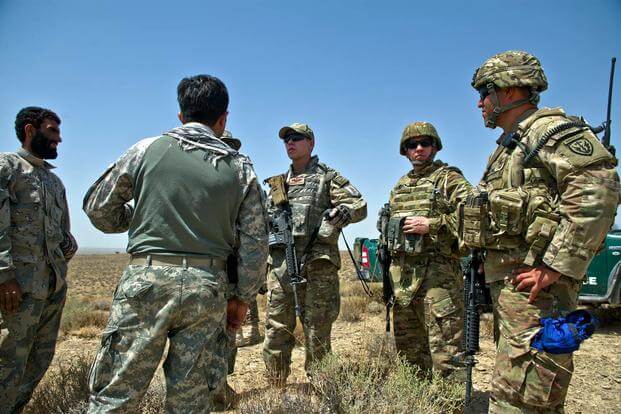A bipartisan group of U.S. senators is pushing a bill to extend and expand a special immigrant visa program for Afghans that has been supported by Defense Secretary Jim Mattis but opposed in the past by other top members of the Trump administration.
The State Department on March 1 stopped doing interviews for applicants to the program at the U.S. Embassy in Kabul.
The bill, called "Keeping Our Promise to Our Afghan Allies Act" and introduced last week by four members of the Senate Armed Services Committee, would provide for an additional 2,500 visas for Afghans who worked for the U.S. military for at least a year.
"This legislation would ensure the continuation of this vital Special Immigrant Visa program, and send a clear message that America will not turn its back on those who at great personal risk stand with us in the fight against terror," said Sen. John McCain, an Arizona Republican and the panel's chairman.
The bill was co-sponsored by Sen. Jack Reed, a Rhode Island Democrat and the ranking committee member; Sen. Jeanne Shaheen, a New Hampshire Democrat; and Sen. Thom Tillis, a North Carolina Republican.
"America has a moral obligation to provide these Afghans with safety from the Taliban who seek to harm them and their families for assisting America's mission in Afghanistan," Tillis said.
The visa program for Afghans was thrown into confusion when President Donald Trump in January issued his first executive order on immigration, which was later blocked in the courts. The initial order put a 90-day travel ban on seven predominantly Muslim countries.
Afghanistan was not among them, but some Afghans traveling on the visas were stopped at airports. Mattis asked for and was given an exemption for the Afghan visa program.
Trump issued a second executive order on immigration March 6, which dropped Iraq from the list of banned countries. The second order is also subject to court challenges.
The Special Immigrant Visa program also allows Afghan pilots and maintainers to train on the A-29 Super Tucano ground attack aircraft at Moody Air Force Base in Georgia. The plan is to have at least 30 Afghan pilots and 90 maintainers go through the training cycle at Moody through 2018.
Col. Pat Ryder, an Air Force spokesman, had said earlier that although Afghanistan was not on the list of banned countries.
"There's always a robust dialogue that's going on with our partners around the world to try to make sure that, when we do have training programs, that we can get the folks in and out of the country," he said.
The Special Immigrant Visa program was created by Congress in 2008 for Afghan military translators, but was later expanded to cover any Afghan who could demonstrate "at least one year of faithful and valuable service" to or on behalf of the U.S. government.
Attorney General Jeff Sessions, a former Republican senator from Alabama and a long-time critic of the program, led an effort last year against increasing the number of Special Immigrant Visas for Afghans.
-- Oriana Pawlyk can be reached at oriana.pawlyk@military.com. Follow her on Twitter at @Oriana0214.
-- Richard Sisk can be reached at Richard.Sisk@Military.com.






























